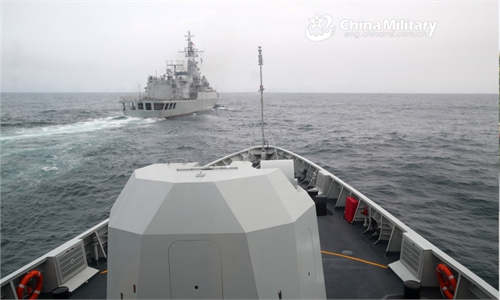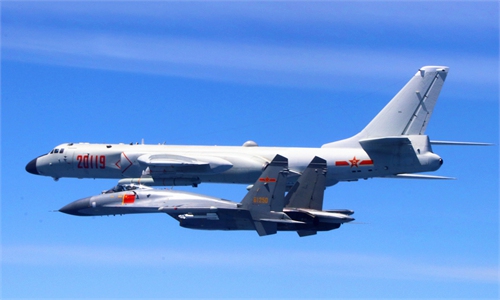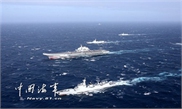Over 100 aircraft drill sorties from carrier Liaoning in 6 days near Japan, Taiwan island ‘demonstrate readiness’
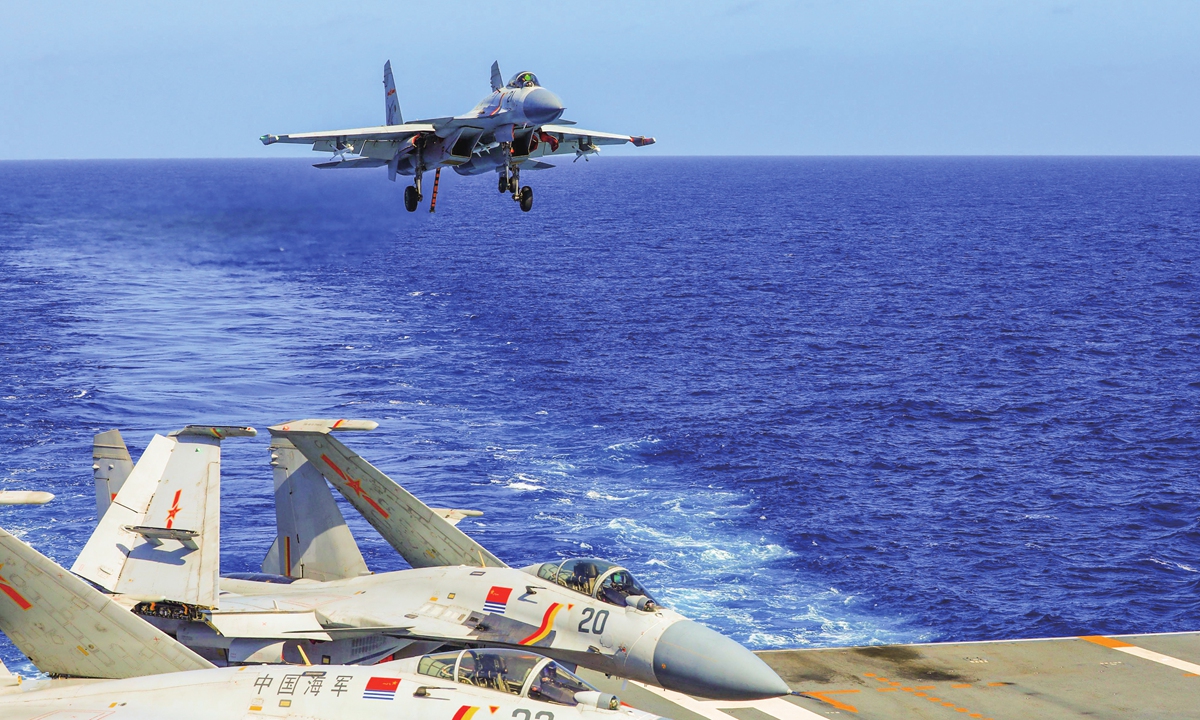
J-15 fighter jets prepare to conduct cross-day-and-night exercises outside the first island chain on a Liaoning aircraft carrier group of the PLA Navy, which on December 30, 2021 wrapped up a realistic combat-oriented far sea exercise. Photo: Xinhua
Japanese Defense Minister Nobuo Kishi said on Tuesday that the aircraft carrier Liaoning of the Chinese People's Liberation Army (PLA) Navy hosted more than 100 aircraft sorties within six days when recently conducting drills near Japan and the island of Taiwan, a figure that analysts said demonstrated the carrier's high level of training, and showed that the carrier can do even better in real combat.
Chinese fighter jets and helicopters were confirmed to have taken off from and landed on the aircraft carrier Liaoning far more than 100 times from May 3 to Sunday, when the Chinese carrier group was operating in waters about 160 kilometers southwest of Okidaitojima and 150 south of Ishigaki Island, Kishi said in a press conference on Tuesday.
The move could be part of the Chinese military's efforts to boost the carrier's operational capability and enhance its ability to carry out operations in more distant maritime and aerial areas, Kishi said, noting that the Japanese government "had to monitor the situation with concern" because it happened "near Japan's southwestern islands and Taiwan."
The drills by the Liaoning aircraft carrier group are meant to deter "Taiwan independence" secessionist forces and external interference forces like the US and Japan, analysts said.
It is also intriguing to see the number of aircraft sorties during the drills, as it reflects high levels of training and combat preparedness of the aircraft carrier, experts said.
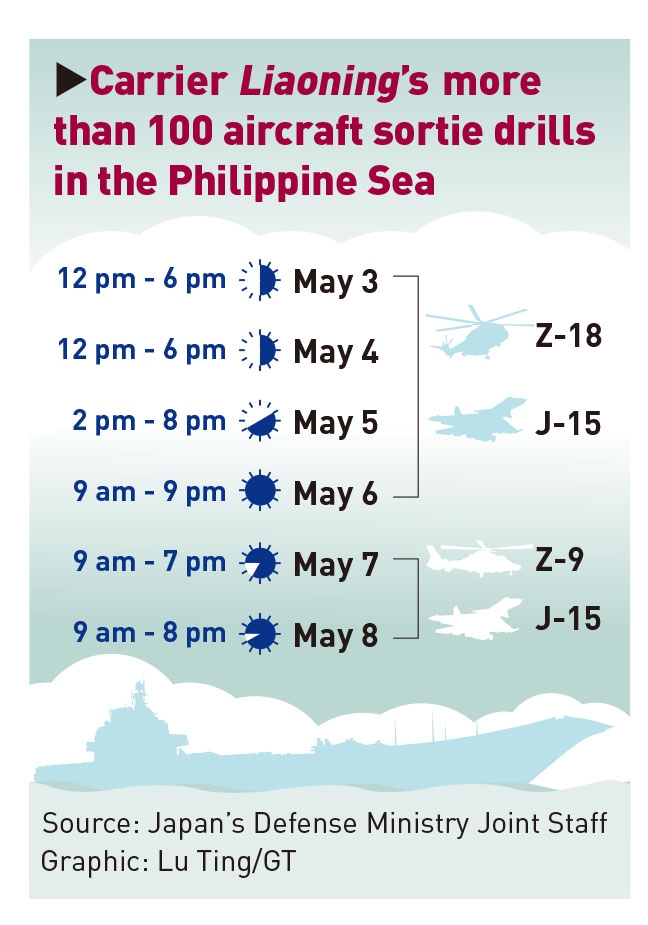
Carrier Liaoning's more than 100 aircraft sortie drills in the Philippine Sea. Graphic:GT
More than 100 aircraft sorties in six days is a decent number for drills, Fu Qianshao, a Chinese military aviation expert, told the Global Times on Wednesday.But it is surely not the maximum potential of the Liaoning, because in drills, it could experiment with different types of tactics, honing coordination or teaching new pilots, so in real combat, one would expect the Liaoning to display an even higher sortie rate, Fu said.
Compared with US nuclear-powered super carriers that use catapults to launch aircraft, the Chinese carrier inevitably has disadvantages in terms of the aircraft sortie rate because it is smaller and uses a ski-jump rack to release aircraft.
But modern warfare is never about fighting alone, as the Chinese carrier group has other powerful members like the Type 055 and Type 052D destroyers with outstanding air defense and anti-ship capabilities, Fu said, noting that on the doorsteps of China, the Chinese carrier group will also get support from land-based forces, including anti-ship ballistic missiles.
China is also reportedly building a third aircraft carrier, which is expected to be larger than the previous two and for the first time be equipped with catapults.

